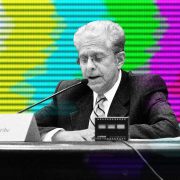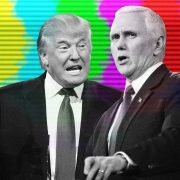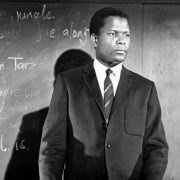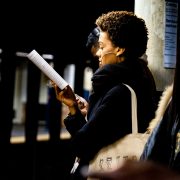Bully, Inc. (Or, How Trump Failed to Strong-Arm the Justice Department and Why He Should Be Jailed)
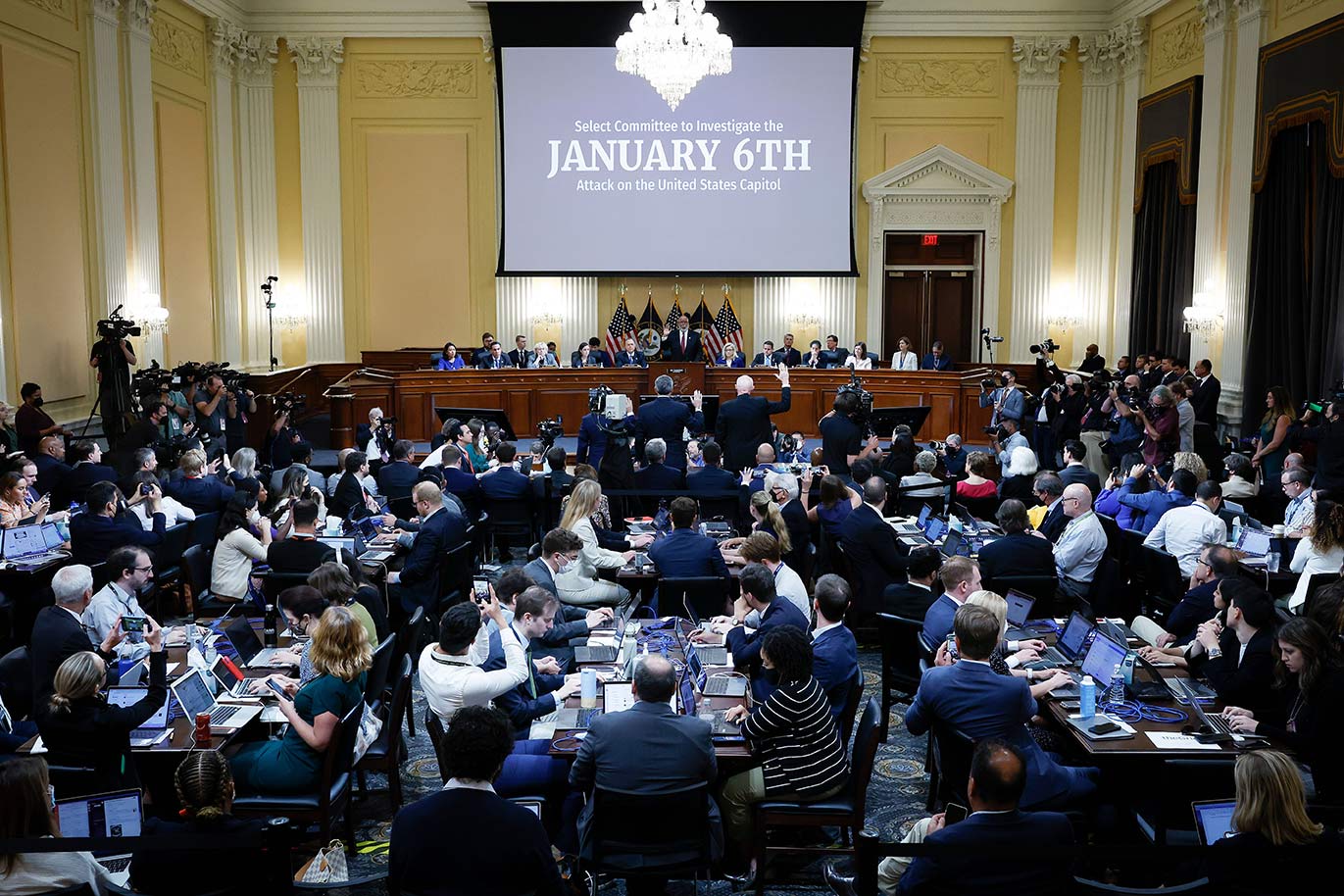
Yet another smoking gun for conspiracy to defraud the American public as part of our series on the January 6 hearings. Here, analyzing testimony from days 4 and 5.
In his war on truth, Trump doubled down on what United States District Judge David Ormon Carter called a “coup in search of a legal theory.” The many barriers that should have symbolized a giant red stop sign to the former president were treated as pesky legal impediments to be mauled by a commander-in-chief bent on screwing over democracy.
By January 6, the Justice Department had thoroughly debunked voter fraud claims. More than eighty jurisdictions from state to federal to the Supreme Court would eventually repudiate Trump’s legal claims as meritless based on insufficient evidence. Republican lawmakers, including secretaries of state who oversaw election results, and state legislators entrusted with confirming the electoral slate to be sent to D.C., weren’t biting.
See, for instance, Arizona House Speaker Rusty “Buzz” Bowers. Mormon grandfather, father of seven, and classically-trained watercolorist with a no-nonsense demeanor, Bowers stated in Day 4 hearing testimony that he had indeed wanted Trump to win the 2020 election but knew the importance of his oath to the Constitution. Under no circumstances could Bowers, in good conscience, go any further than what the law required of him.
When Bowers asked the president’s lawyer, Rudy Giuliani, for confirmation of election fraud, the former New York mayor stated, “We have lots of theories, we just don’t have the evidence.” Even under that significant pressure, Bowers refused to convene a quorum of the Arizona House at the behest of Giuliani barring substantial proof that things had indeed been rigged. Despite unrelenting efforts from the White House to create the impression of voter fraud, Bowers stood firm. With no evidence to the contrary, the results of the 2020 presidential election in the State of Arizona would stand.
“In our previous hearings,” Mississippi Democratic Congressman Bennie Thompson, chair of the committee, intoned with furrow-browed solemnity, “the Select Committee showed that then President Trump applied pressure at every level of government, from local election workers up to his own vice president, hoping public servants would give in to that pressure and help him steal an election he actually lost. [On day 5 of the hearings] we’ll tell the story of how the pressure campaign also targeted the federal agency charged with enforcement of our laws, the Department of Justice.”
The legal philosophical underpinnings for a unitary theory of governance where the president retains outsized power found a strange bedfellow in the legal theoretical effort to involve “fake electors.” The playbook of Trump’s legal adviser Professor John Eastman, Federalist Society and CATO bigwig, stunk of the kind of sophistry you’d find in some sort of attempt to win the scorned love of a constitution whose pure intention can only end in sadomasochistic acts of the most horrible debasements. (We will return to Eastman in due course). Suffice it to say that the theoretical blueprint Eastman was pushing on federal and state officials smacked of “the crown jurist of Nazism” Carl Schmitt’s legal advice to Hitler in the days leading up to the Reichstag Fire.
The fake electors that never were
On December 1, 2020, Attorney General Bill Barr called a press conference to announce that the election had been safe and secure. Dominion voting machines had not malfunctioned; suitcases that had supposedly turned up stuffed ballots were nothing of the sort; neither dead people nor illegal immigrants had voted en masse. The far-fetched Italian satellite mission to electronically replace Biden with Trump votes would also end up in the Justice Department’s dustbin of vetted fictions.
But nearly a month after the election, after Barr’s explicit pronouncement that voter irregularities hadn’t taken place on a scale that could ever warrant reversing the election’s outcome, Trump and his legal advisors decided to ignore the counsel of the highest representative of the DOJ, and instead proceeded to accelerate wackadoodle theories that no legal scholar worth his salt would ever entertain. When future fascist historians come to write about these perfidious times, Trump’s effort to reverse the results of the 2020 election will likely hinge on nothing more than impulsive assertions, batshit claims, and conjectures born of insinuation, all emanating from the hearts and minds of legal advisers like Eastman and Giuliani. In short, meaningless statements founded on despotic quicksand.
Trump formulated a plan — a conspiracy in the language of mob justice. He sowed dissension all the way up to his January 6 Ellipse speech, where he exhorted his followers to march on the Capitol and “fight like hell.” And he did so with the enthusiastic assistance of a conservative echo chamber that included the likes of Sean Hannity, Tucker Carlson, and Steve Bannon, stoking skepticism between November’s election and certification on the 6th.
In perhaps his most shameless effort at constitutional subversion, Trump attempted to coerce Department of Justice officials to release a statement insisting that the DOJ needed to investigate election fraud claims further. Acting Attorney General Jeffrey Rosen had taken over for Barr in the dark, shrouded days leading up to January 6. Trump wanted Rosen to disseminate a letter from Justice that would grant credibility to his ranting schemes, signaling that the department needed to further audit the election results given irregularities in the vote tally. Trump and his strategists believed that such a letter would seed so much doubt amongst state electors that momentum in Republican-dominated states would easily favor replacing legitimate with fake electors.
Would officials choose the court of law route that had dozens of times rejected election fraud claims or instead trust the judgment of a corrupted Department of Justice that represented the highest legal counsel in the land? Those state legislators who were still on the fence over the plot to disqualify results after Barr’s statements of December 1 could, Trump suggested, be nudged in the direction of recounts, ultimately certifying the former president’s win with a brand new alternate slate of electors.
If only the DOJ would get the fuck on board!
Except for Jeffrey Clark, a woefully unprepared environmental lawyer with no criminal trial or appellate experience, and his co-conspirator at Justice, attorney Ken Klukowski, Trump’s attempt to install apparatchiks would hit a brick wall. If acting AG Rosen continued to refuse to follow his orders, he would try to install Clark to head an agency with over 100,000 attorneys, special agents, and staff. But the president’s pinch hitter, Clark, lacked the skills to lead, incensing the top brass at DOJ. With little support from within the Department of Justice, the former president would ultimately be forced to concede. A series of showdowns with acting AG Rosen and assistant attorneys general threatening mass resignations if Trump’s putsch prevailed convinced POTUS to back off.
Discord at the Justice Department
Day 5’s witnesses, Rosen, his deputy Richard Donoghue, and Steven Engel, who led the department’s Office of Legal Counsel, responded with candor in describing Trump’s persistent effort to subvert legal authority. Each reaffirmed to the committee that they had conveyed the election’s fairness on several occasions in meetings with the president, his Chief of Staff Mark Meadows, White House Counsel Pat Cipollone, and others in the Trump orbit, including legal advisors Giuliani and Eastman, and Trump’s main collaborators at Justice, Clark and Klukowski.
In the last stage of the electoral process, the counting and certification of the vote before the joint session of Congress on January 6, the Rosen-led DOJ had asserted that it should have nothing to do with determining a separate, unsubstantiated set of facts and, in consequence, it would abstain from injecting doubt into election results. Since states had already confirmed Biden’s 306 to Trump’s 236 electors — and only states were constitutionally mandated to affirm the winners of their elections — the Department of Justice had the legal obligation to keep silent.
No letter would go out on Rosen’s watch.
If actual, pervasive voter irregularity were to come to the attention of the Justice Department, then the AG could have stepped in to bring new evidence to the attention of state legislators. However, since no such irregularities had been factually corroborated — and Justice had been meticulous about scrutinizing every false claim brought to the department’s attention — Rosen, Donoghue, and Engel made it explicit that Trump was barking up the wrong tree.
If he continued to bark, the squirrels who made the Justice system go might eventually run away.
Again, Chair Thompson:
“[Trump] wanted the Justice Department to help legitimize his lies, to basically call the election corrupt, to appoint a special counsel to investigate alleged election fraud, to send a letter to six state legislatures urging them to consider altering the election results. And when these and other efforts failed, Donald Trump sought to replace Mr. Rosen, the acting attorney general, with a lawyer who he believed would inappropriately put the full weight of the Justice Department behind the effort to overturn the election.
Let’s think about what that means. Wherever you live in the United States, there’s probably a local government executive, a mayor, or a county commissioner. There’s also an official responsible for enforcing the laws, a district attorney, or local prosecutor. Imagine if your mayor lost a reelection bid, but instead of conceding the race, they picked up the phone, called the district attorney, and said I want you to say this election was stolen.
I want you to tell the Board of Elections not to certify the results. That’s essentially what Donald Trump was trying to do with the election for president of the United States. It was a brazen attempt to use the Justice Department to advance the president’s personal political agenda.”
At the Willard Hotel, with a broken plot
How exactly did Trump attempt to obtain the legal imprimatur of the Justice Department in the waning days of his presidency? We will find out in Day 6’s hearings featuring the testimony of Cassidy Hutchinson, an aide to the chief of staff, about the indifference her boss, Meadows, displayed towards the violence erupting at the Capitol. For the man responsible for directing, managing, and overseeing all policy development, daily operations, and staff activities for the President, Meadows’ indifference towards the cockamamie spewing from the president’s legal henchmen should have, at the very least, garnered more than a lackluster shrug.
In an office responsible for coordinating and communicating with all departments and agencies of the administration, Meadows’ detachment also meant that when he stated to Cipollone that Trump was totally fine with the “hang Mike Pence” slogans — and that he wasn’t going to try to convince him otherwise — the chief of staff was placing himself in indictable territory. If Eastman, as director of the conservative think tank Center for Constitutional Jurisprudence, was Trump’s Rasputin in the last days of what could have easily spelled the end of our lovely democratic experiment, Meadows’ antics smack of callous indifference.
While Meadows backed Trump’s plan to “Stop the Steal,” Trump’s White House lawyers Pat Cippione and Eric Herschmann supported the position of the three horsemen of the DOJ — Rosen, Donoghue, and Engels.
On the other side of the ledger, Eastman, Giuliani, Clark, and Klukowski were setting up shop in “the war room” at the Willard Hotel. The day after the election — November 4, 2020 — the Trump team began renting rooms at the Willard down the block from the White House, where a command center directed traffic both at the state and federal levels with pressure placed on all levers of power. And it was to the Willard that Meadows intended to go the night of January 5 to meet up with Giuliani, Roger Stone, Eastman, and General Michael T. Flynn. If not for the sensible recommendation of his young aide, Hutchinson, 25, who insisted he not place himself in legal jeopardy, Meadows might very well have ended up as the most significant administration figure outside the president to be part of the Willard Hotel plot to undermine the peaceful transfer of power the next day.
The Department of Justice had already laid the kibosh on the White House’s effort to obtain a kosher stamp of approval from the DOJ. Once Justice balked, the conspiracy plotted at the Willard hinged on whether a last-minute effort to dissuade Pence from certifying the electoral college results could be carried out. But rather than stating his objections to the tally and calling for Trump to be the president based on an alternate slate of electors or slowing the process down by punting it back to the states to decide later, Pence instead went ahead with the certification. The insurrectionists were finally corralled — and the joint house of Congress gathered late into the night to certify Biden and Kamala Harris as president and vice president, respectively.
In those final days of the Trump presidency, when Rosen, Donoghue, and Engel were pressured to release a letter written by the aggressively ambitious Clark in the name of the three that would, in Trump’s words, “just say the election was corrupt,” institutions proved to be far more resilient than perhaps previously thought. To even think about the durability of our national legal order as something that could be attacked from within by venal characters running the levers of executive power, we must at least acknowledge that we also thought things were brittle enough that the very legitimacy of what we once believed sacred — the protected right to vote under free and fair conditions — was not.
“As you can tell, these efforts were not some minor or ad hoc enterprise concocted overnight,” Vice-Chair Liz Cheney intoned with the gravity becoming of a Republican stalwart pleading with a subset of the American public brainwashed by Trump’s propaganda campaign. Trump’s claim that the DOJ was still investigating what Rosen, Donoghue, and Engel had already rejected as meritless was a major facet of The Big Lie. “Each required planning and coordination,” Cheney said. “Some required significant funding. All of them were overseen by President Trump.”
In their last meeting in the Oval Office, January 3, after several weeks of repeated attempts to influence the DOJ to do the president’s bidding, acting AG Rosen reaffirmed Barr’s earlier statement of December 1 to the Associated Press. While U.S. attorneys and FBI agents had followed up on election tampering, the Justice Department, Barr asserted, had “not seen fraud on a scale that could have affected a different outcome in the election.” As Rosen insisted that there were no more legal routes to de-certification and that, under no circumstances would he, nor Donoghue and Engel, accede to the president’s request to circulate a letter to the general public that would have reversed Barr’s decision, Trump slammed the Resolute Desk and said that he — the president — had chosen Clark to take over DOJ.
Needless to say, the threat of mass resignation from the Rosen camp made Trump reconsider. The letter that the former president wanted the DOJ to circulate was tantamount to a “murder-suicide pact” that would eventually “damage everyone who touches it,” said White House counsel Pat Cipollone at the January 3 meeting.
Eastman’s memo, a dispatch from Trump’s alternate reality
Although reluctant to address Eastman’s claims in the run-up to January 6, Harvard Law School’s eminent constitutional scholar, Lawrence Tribe, rejected Eastman’s esoteric reading of the 12th amendment to the Constitution, supposedly based on Tribian scholarship. On September 20, 2021, Tribe responded by tweeting, “this Eastman memo pretends to be based on my analysis, but in fact takes snippets of my work wholly out of context and spins a totally fake web of ‘law’ that no halfway decent lawyer would take seriously.”
Eastman’s direction to Pence that he had the constitutional authority to block the certification coupled with the six-point plan of action that he sent to Utah Republican Senator Mike Lee for Pence to throw out the electors from seven states to keep Trump in power was summarily rejected by both parties. The memo claimed that Pence could unilaterally reject electors from those states, including Arizona, Georgia, and Pennsylvania. Once that happened, Eastman insisted, a House vote with each state delegation receiving one ballot could decide the election. If Pence outright rejected the votes of the battleground slate, Trump would win a majority of the electors.
Eastman claimed that even if states rejected the former president’s effort to reverse election results, Trump could still remain in office. He based his argument on the flimsy ground that states ultimately decide, and if Pennsylvania Republicans, say, decided to appoint a pro-Trump slate of electors to back the former president even after his loss, then legally, they had the right to do so. Although the slate would be illegitimate, enough question marks would remain to permit the House of Representatives to decide.
The decision, however, wouldn’t be based on a traditional majority vote in the Democratic-led chamber. Since Republicans dominated state delegations, Eastman asserted, each state would have one vote in a recount, making Trump president again if the scheme were to commence as planned. Eastman referenced Tribe to support his claim that elections are decided not by the magic number 270 but by who gets more votes in the Electoral College.
If Pence had rejected questionable ballots, personally deciding which slates were legitimate — a point that Eastman concedes was never part of Tribe’s commentary on the 12th amendment — then the numbers certainly could have added up to a Trump win.
Instead, the Republic was saved by its chinny chin chin.
J. Reuven Krupka received his Ph.D. in Political Science from the Graduate Center of the City University of New York. In addition to his role as editor at The Daring, he has been published in Moveable Type, The Journal of Classical Judaism, and is an active member of the writers' community WordShedNYC. He lives in Seattle, Washington.


